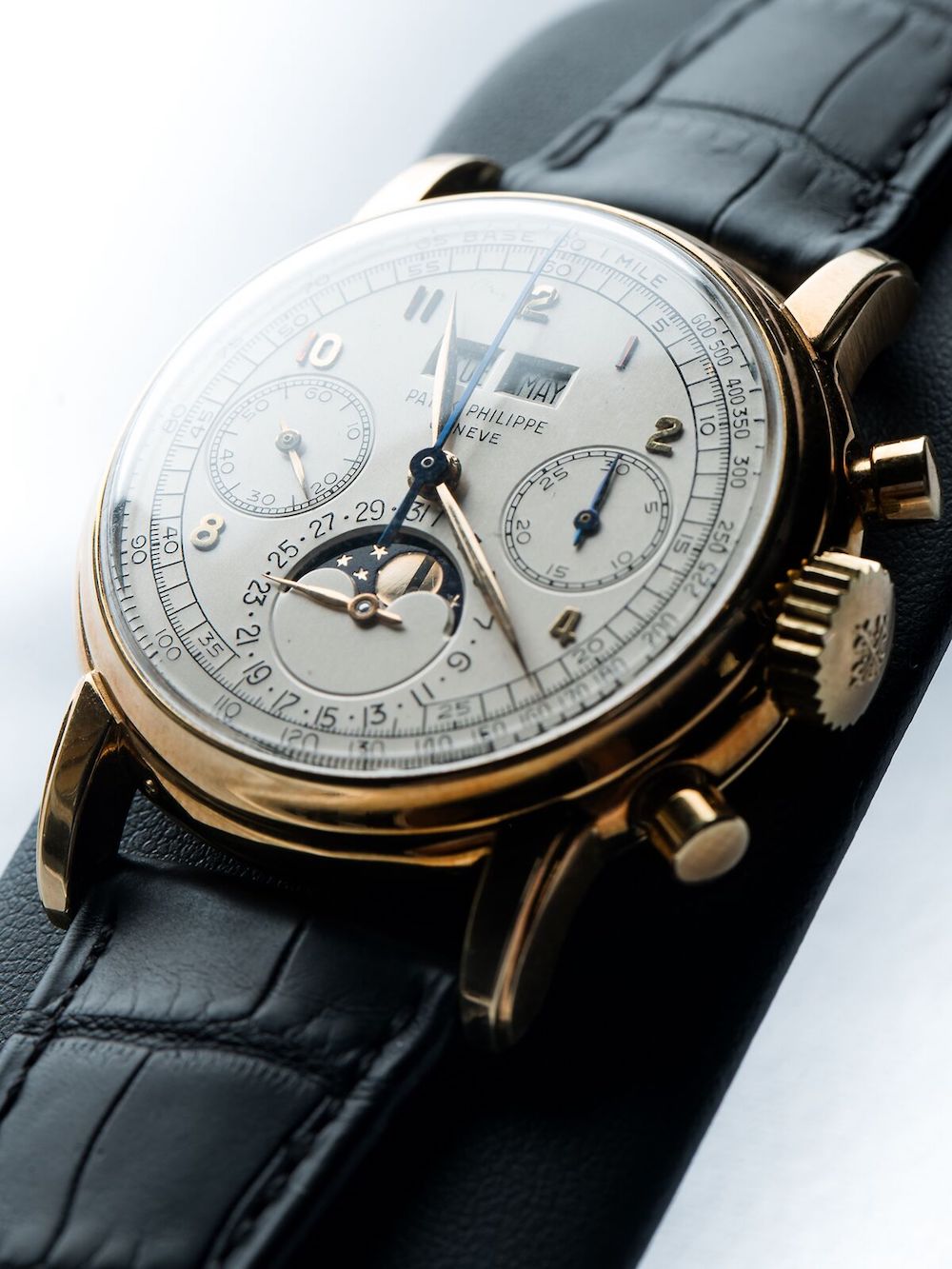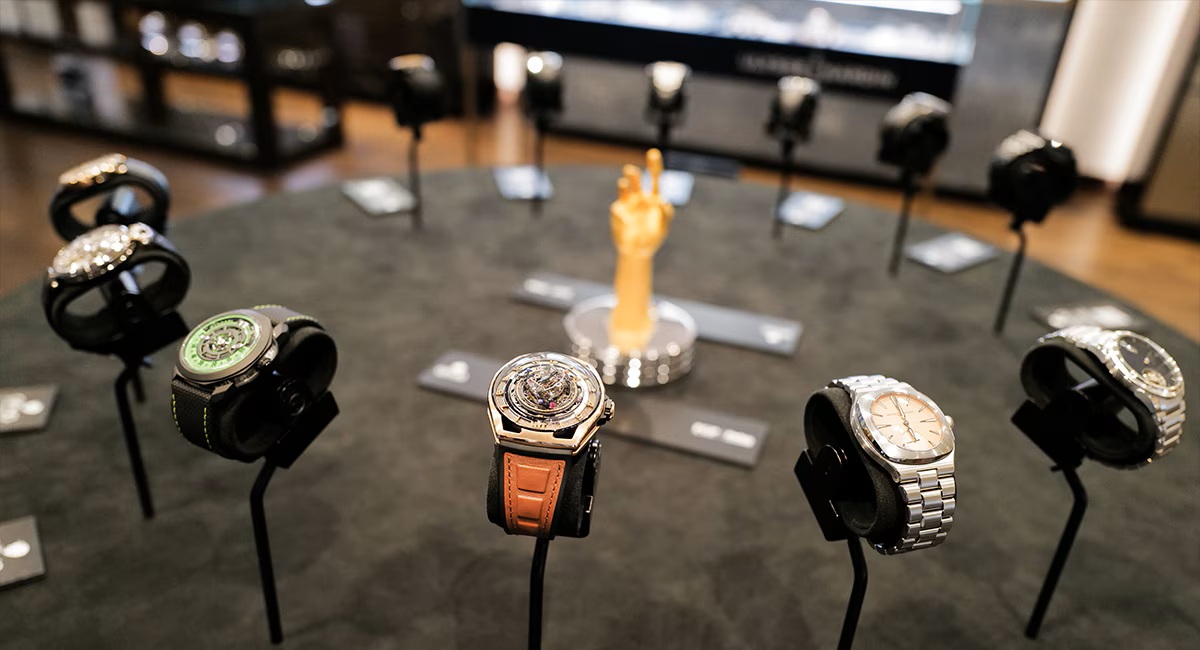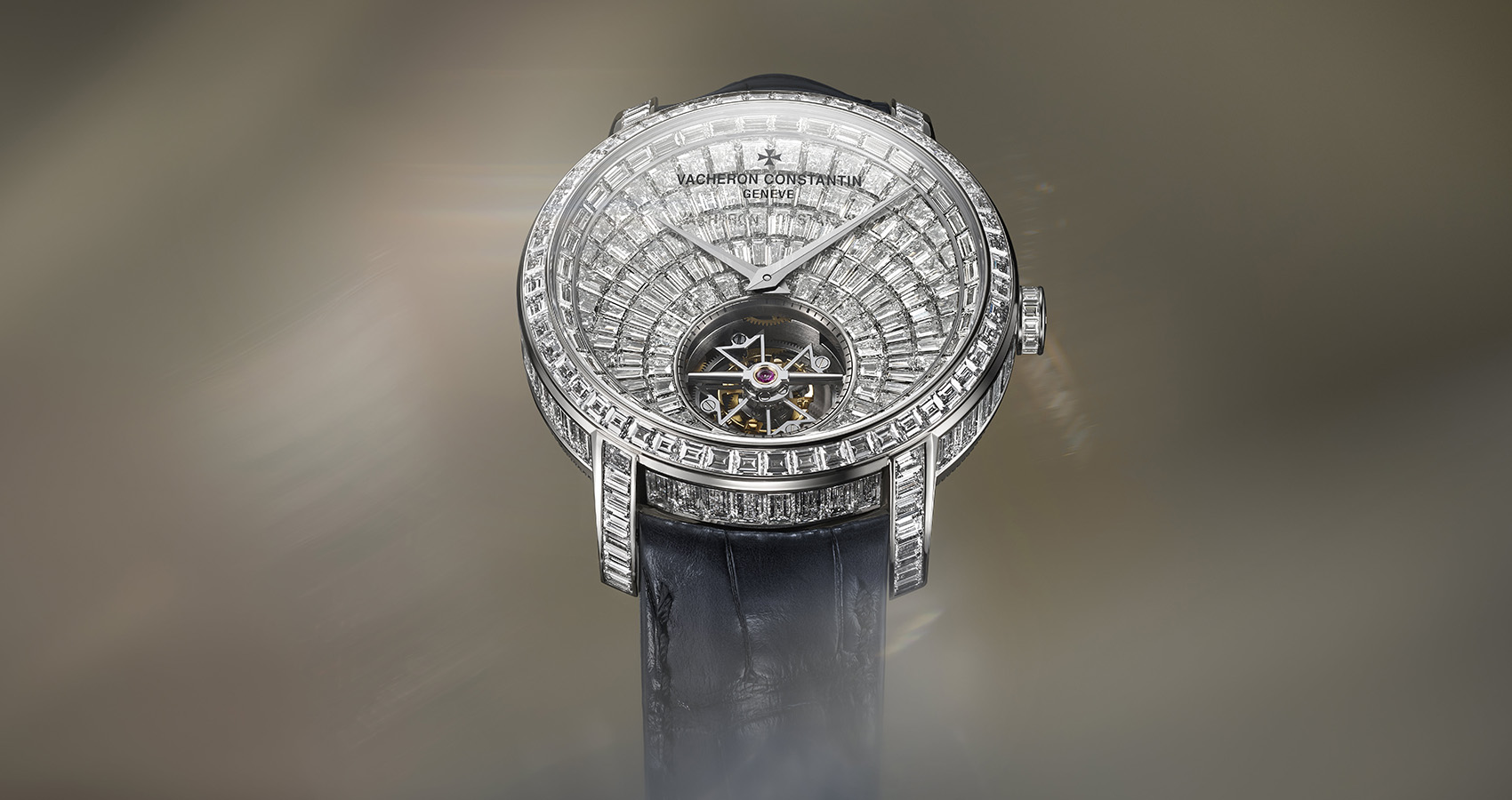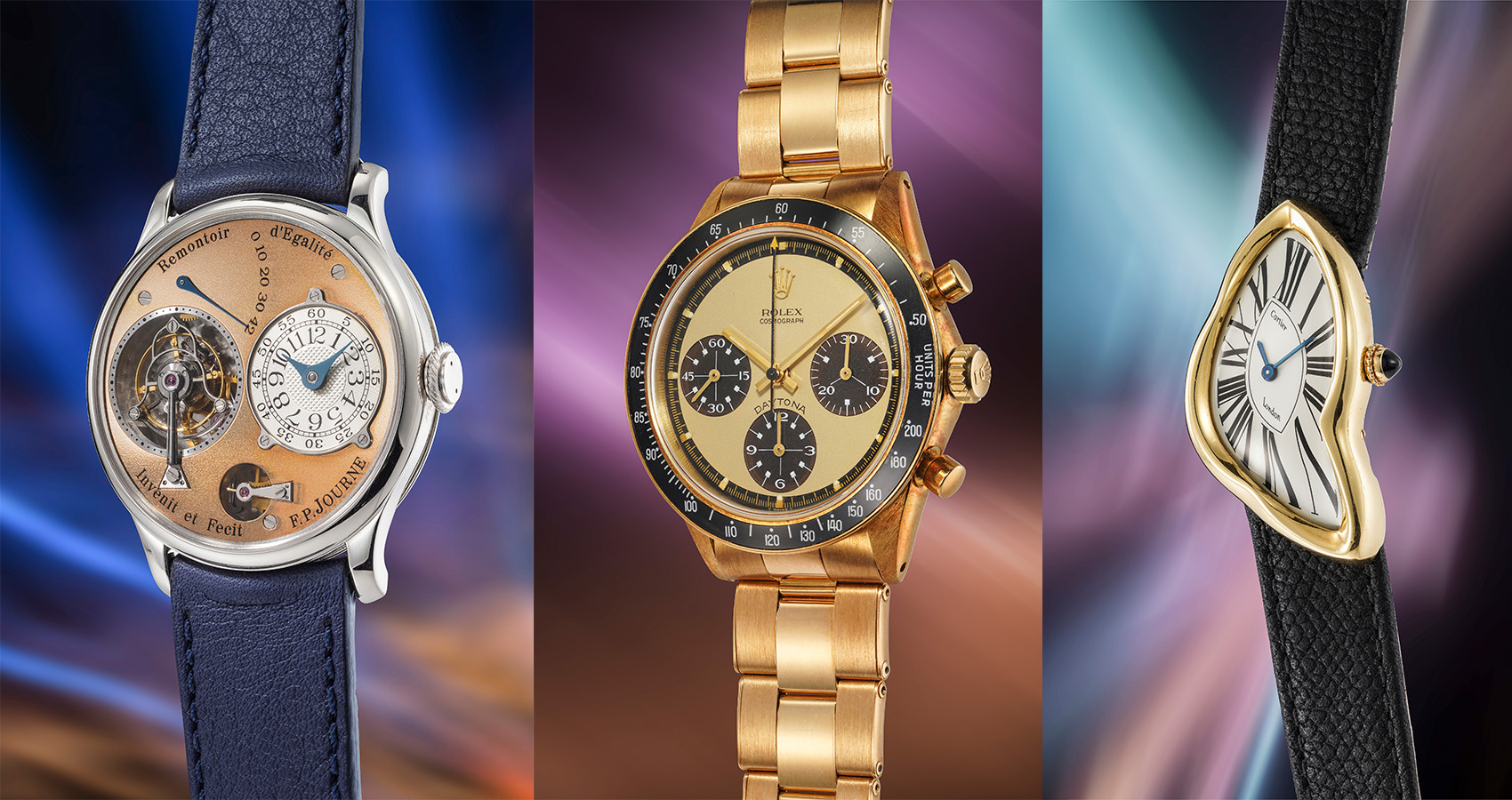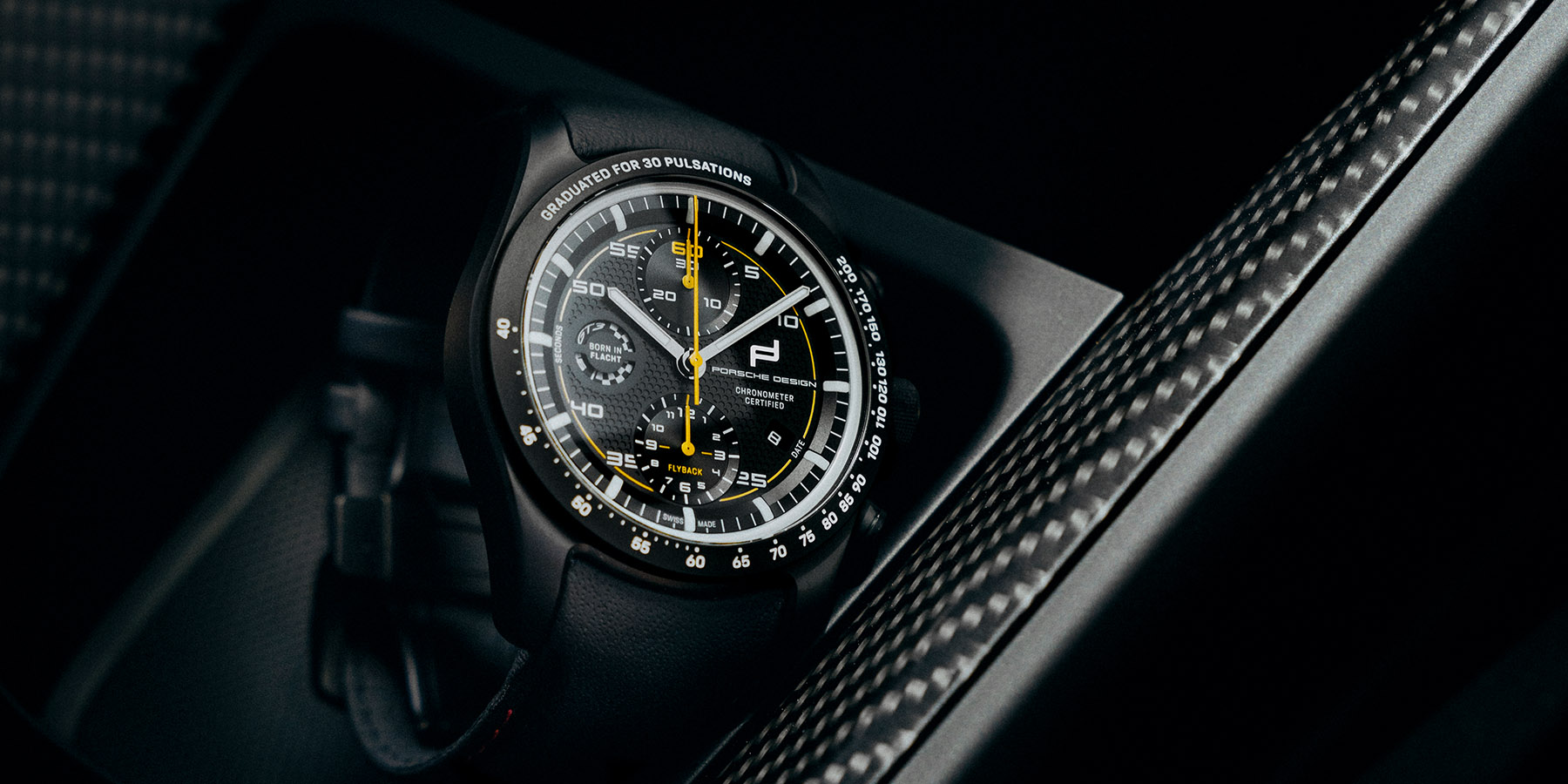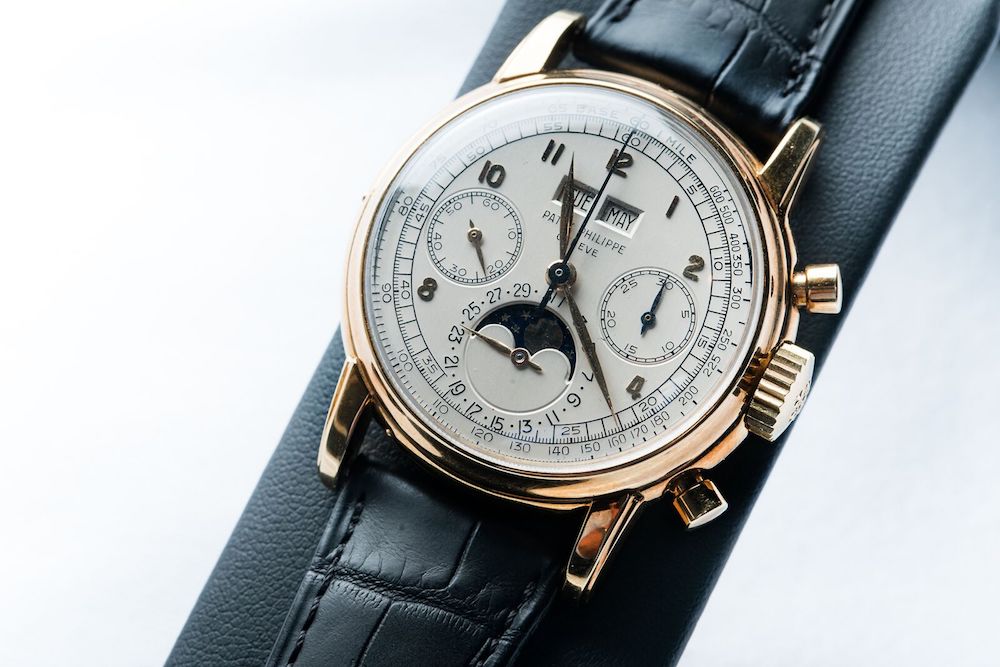
Throwback Thursday: Patek Philippe Perpetual Calendar Chronograph Ref. 2499

This perpetual calendar chronograph was the successor of the Reference 1518, the world’s very first perpetual calendar. Patek Philippe introduced it in 1950 and kept it in the collection for 35 years. Despite this, it remains a very rare watch as in most years less than ten were made. The total production for Reference 2499 was there for only 349 watches.
During the course of its production, Patek Philippe made four different series, that all vary slightly from each other. The first series was fitted with square chronograph buttons, combined with a dial featuring Arabic numerals and a tachymeter scale. The second series, from which the watch in this article is from, was the first to have round chronograph buttons and was made with a dial featuring either Arabic numerals of applied baton markers. These markers, as well as the round chronograph buttons, would also be on the third and fourth series. The third series added to this outer seconds divisions, while the fourth and last series of the Reference 2499 introduced a sapphire crystal as well.
With a diameter of 37.5mm is the Reference 2499 larger than its predecessor, and even surpasses its successor, Reference 3970 by more than a millimeter. While this gives the Patek Philippe Perpetual Calendar Chronograph a perfectly wearable size even by today’s standards.
While many collectors have an individual preference which series is their favorite Reference 2499, it is the color of the precious metal that makes the largest impact on its rarity. Yellow gold is by far the most common, although that seems hardly an appropriate term in relation to such a rare and exquisite watch. In pink gold, there are to believed only about ten made, divided over the four series. Platinum is by far the rarest of them all, with only two ever made, of which one permanently resides in the collection of the Patek Philippe Museum.
Given the watch rarity and importance in watchmaking history, it doesn’t come as a surprise that yellow gold models change hands for prices north of one million dollar with the pink gold versions easily doubling that. It not only highlights the watch desirability but is a testimony to the industry benchmark that it is.
 SIGN UP
SIGN UP


